
Filter News
Area of Research
News Type
News Topics
- (-) 3-D Printing/Advanced Manufacturing (25)
- (-) Bioenergy (14)
- (-) Computer Science (33)
- (-) Machine Learning (5)
- (-) Microscopy (6)
- (-) Polymers (5)
- Advanced Reactors (7)
- Artificial Intelligence (7)
- Big Data (6)
- Biology (3)
- Biomedical (16)
- Biotechnology (2)
- Buildings (1)
- Chemical Sciences (5)
- Clean Water (2)
- Composites (1)
- Coronavirus (22)
- Critical Materials (4)
- Cybersecurity (3)
- Energy Storage (14)
- Environment (18)
- Exascale Computing (4)
- Fusion (10)
- Grid (4)
- High-Performance Computing (3)
- Isotopes (7)
- Materials (2)
- Materials Science (28)
- Mathematics (2)
- Mercury (2)
- Molten Salt (1)
- Nanotechnology (14)
- National Security (2)
- Neutron Science (29)
- Nuclear Energy (24)
- Physics (13)
- Quantum Science (12)
- Security (3)
- Space Exploration (2)
- Summit (14)
- Transportation (10)
Media Contacts
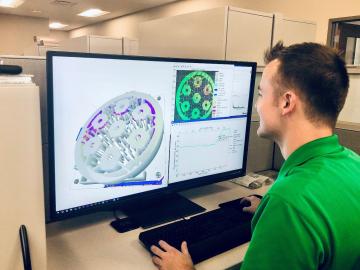
Oak Ridge National Laboratory researchers have developed artificial intelligence software for powder bed 3D printers that assesses the quality of parts in real time, without the need for expensive characterization equipment.
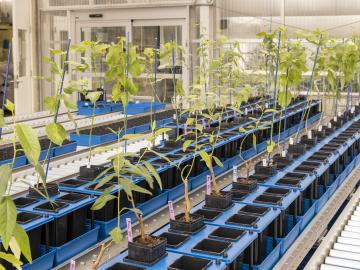
Scientists at the Department of Energy’s Oak Ridge National Laboratory have a powerful new tool in the quest to produce better plants for biofuels, bioproducts and agriculture.
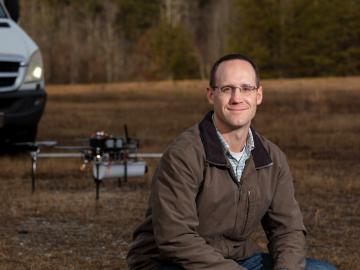
Horizon31, LLC has exclusively licensed a novel communication system that allows users to reliably operate unmanned vehicles such as drones from anywhere in the world using only an internet connection.

Real-time measurements captured by researchers at ORNL provide missing insight into chemical separations to recover cobalt, a critical raw material used to make batteries and magnets for modern technologies.
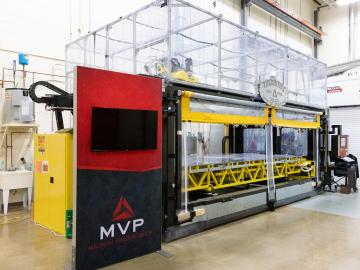
ORNL has licensed two additive manufacturing-related technologies that aim to streamline and ramp up production processes to Knoxville-based Magnum Venus Products, Inc., a global manufacturer of fluid movement and product solutions for industrial

ORNL researchers have developed an intelligent power electronic inverter platform that can connect locally sited energy resources such as solar panels, energy storage and electric vehicles and smoothly interact with the utility power grid.

A team led by Dan Jacobson of Oak Ridge National Laboratory used the Summit supercomputer at ORNL to analyze genes from cells in the lung fluid of nine COVID-19 patients compared with 40 control patients.

From materials science and earth system modeling to quantum information science and cybersecurity, experts in many fields run simulations and conduct experiments to collect the abundance of data necessary for scientific progress.

Five researchers at the Department of Energy’s Oak Ridge National Laboratory have been named ORNL Corporate Fellows in recognition of significant career accomplishments and continued leadership in their scientific fields.
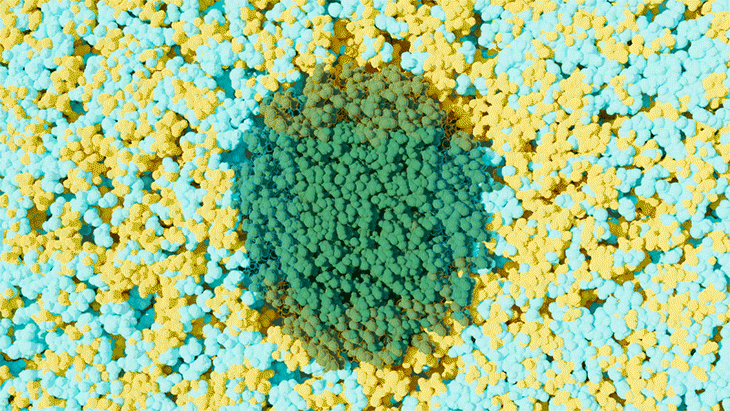
Scientists at ORNL used neutron scattering and supercomputing to better understand how an organic solvent and water work together to break down plant biomass, creating a pathway to significantly improve the production of renewable


